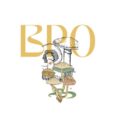The use of psychedelics to treat some mental health conditions has now been made legal in Australia, making it the first nation in the world to do so.
MDMA and magic mushrooms can now be prescribed by licensed psychiatrists for specific forms of depression and post-traumatic stress disorder, respectively.
Many academics and mental health professionals have welcomed the contentious decision as a game-changer. Others argue that the action was rushed and shouldn’t have been given too much attention.
According to experts, there is still a chance of having a “bad trip,” which is when a user experiences anything unpleasant when using drugs. The therapy is also expensive; according to Australian media, a single course may run into the tens of thousands of dollars.
MDMA, sometimes referred to as ecstasy or the party drug, is a synthetic substance that induces hallucinations. It boosts the user’s energy levels, enhances their sensory perceptions, and alters their perception of time.
Due to the active ingredient psilocybin, magic mushrooms, which grow naturally, also produce hallucinatory effects.
Clinical trials are also being conducted in the US, Canada, and Israel while Australia is the first nation in the world to regulate the substances as medications.
The new laws, which took effect in Australia on July 1, allow licensed psychiatrists to prescribe psilocybin for depression that has not responded to previous therapies and MDMA for post-traumatic stress disorder (PTSD).
Australia launches a groundbreaking MDMA therapy for PTSD.
MDMA might aid trauma sufferers in confronting memories.
Psychoactive medication may “reset” a depressed brain.
Dr. Mike Musker, a mental health researcher at the University of South Australia, stated that use of the psychedelics would be closely supervised and not just a matter of “take a pill and go away.”
He called the move a “game-changer” and said that, for example, the patient receiving MDMA would likely receive three dosages spaced out over five to eight weeks. Each session would last around eight hours, during which the therapist would remain at the patient’s side.
However, patients shouldn’t hope on a quick recovery.
“I’ve read about stories where people have had what you might call bad trips, or actually they’ve re-experienced their trauma, and so we’ve got to take great caution,” Dr. Musker added.
While psychedelics had the potential to be used therapeutically, according to Professor Susan Rossell of Melbourne’s Swinburne University, the decision had been made too soon.
“You cannot get a drug to market as quickly as this has been done when you look at interventions… for any other kind of disease, whether it’s cardiovascular disease or cancer,” she told AFP.
Prof. Rossell, who is in charge of Australia’s largest trial examining psilocybin’s antidepressant benefits, emphasized that additional studies were required to ascertain the therapy’s long-term success.
When the Australian Therapeutic Goods Administration (TGA) categorized MDMA and psilocybin to allow for therapeutic use, it astonished many in the medical and scientific communities.
It deemed the medications “relatively safe” when administered to individuals “with serious mental health conditions” in a “medically-controlled environment”. Otherwise, both psilocybin and MDMA are prohibited in Australia.
The TGA concedes that there are uncertainties and conflicting evidence, but claims that “promising signs” point to certain patients’ mental health possibly improving with regulated therapeutic medication usage, and that the “benefits for some patients… will outweigh the risks.”
The regulatory body claims that no products containing MDMA or psilocybin are currently approved. Although many medications have not been tested for safety or efficacy, the categorization means that psychiatrists will be able to legally acquire and supply some that do.

